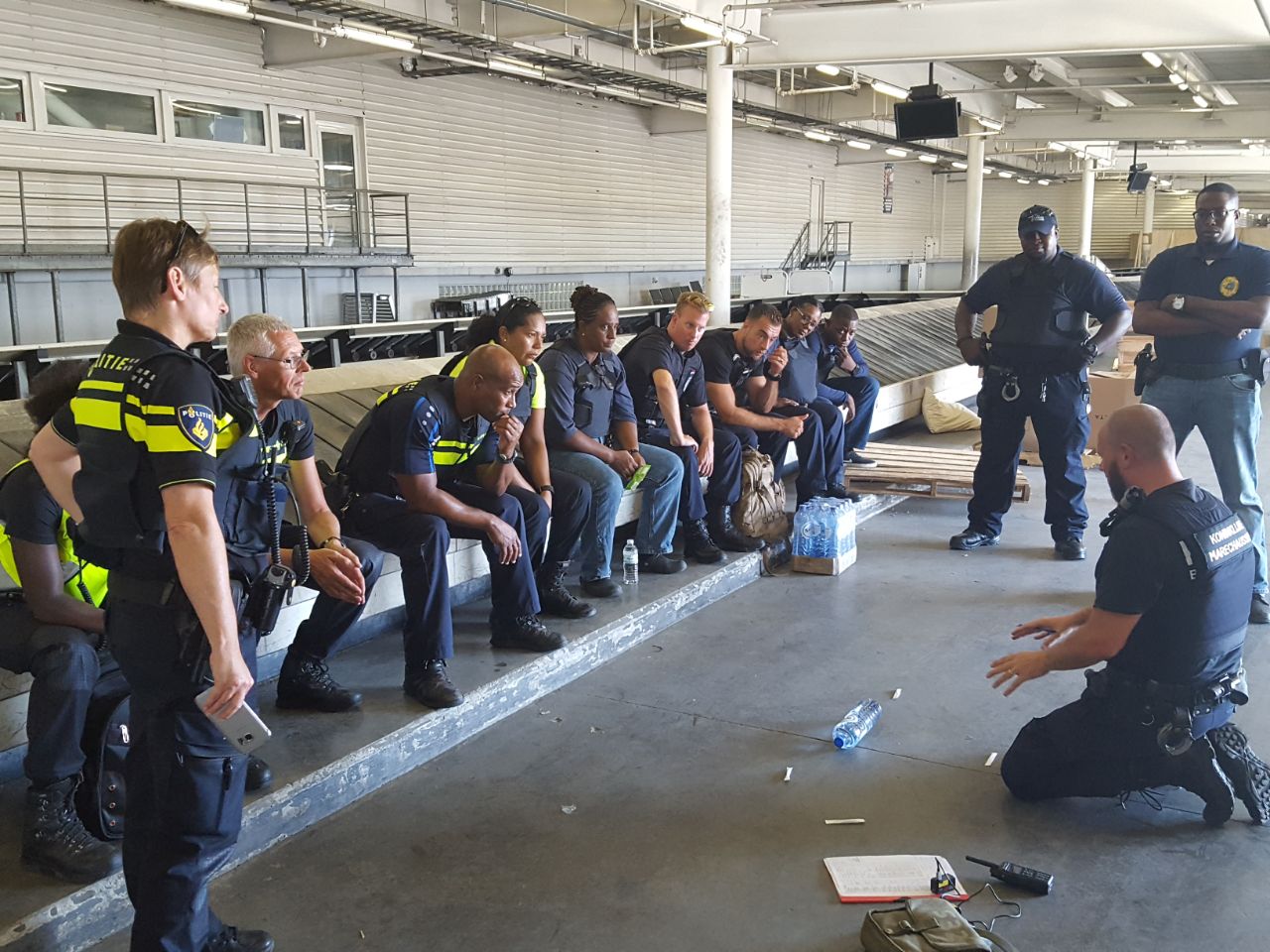Arrest team is underfunded but its members are dedicated

PHILIPSBURG — The police force does not have the necessary financial and material resources to adequately set up, manage and guarantee the deployment of the arrest team. This appears from an inspection by the Law Enforcement Council into the organization and the deployment of the arrest team.
On the other hand, the Council praises the quality of the training of the team-members and the commitment of individual police officers “which is characterized by dedication, creativity and expertise.”
The Law Enforcement Council report describes in great detail the legal framework that underpins the functioning of the arrest team. That framework is in order, but the Council concludes that the arrest team is insufficiently equipped in terms of human, material and financial capacity to carry out the assigned work in the safest possible manner. The report is critical of the Ministry of Justice, stating that it provides hardly any involvement and policy support. “This applies to regulatory and policy support regarding the need for the procurement of equipment, training, cooperation, legal certainty and continuity.”
The Council furthermore encountered negligence in the field of confidentiality of information and shielding of the working methods and identity of team members within various ministries.
One of the reasons behind these confidentiality-breaches is the fact that the police force does not have an operational budget. If the arrest team has to provide assistance on another island, the police force has to go through a bureaucratic financial procedure at the Ministry of Justice and the Ministry of Finance. “Because data cannot be supplied anonymously this means that an unknown number of people within the bureaucracy are given insight into the names and details,” the report states. “Failure to shield this information creates serious security risks for members of the arrest team.
A point of concern is the resources that are at the disposal of the arrest team. “The equipment is mostly obsolete and at the end of its lifespan for safe and responsible use. This includes safety equipment like bulletproof shield and vests and firearms.”
In a footnote with this statement, the Council states that based on the Kingdom Act Law Enforcement Council, parts of the report have not been made public.
The arrest team is understaffed, the Council found. It should consists of two sections of eight FTEs (full time equivalents), each with a section commander who operates under a general commander. The required strength for the arrest team is therefore 19 FTEs, but currently there are only 11 FTEs.
The understaffing obviously has consequences. The members of the arrest team do their jobs next to their regular responsibilities as police officers. The team is for instance also deployed for the transport of prisoners and for surveillance and security. The members also spend a lot of time on weekly training. As a result, not all high-risk court hearing can be held on St. Maarten because the court cannot be properly secured.
Officers who want to become a member of the arrest team have to go through a tough selection process. Firstly, applicants must have worked at the police force for at least four years. They have to do an in-test that covers physical, psychological and medical standards. Applicants who get through this phase undergo a background check. Afterwards they are sent to Aruba for a second in-test. Upon completion they can participate in the arrest team training in Aruba. The training takes between twelve and seventeen weeks and includes physical and mental endurance, marksmanship and self defense.
Staffing of the arrest team is another concern. As an example, the report mentions that when 17 officers applied for the team, only three of them completed the training. Several officers have to retire in the near future because of age or their physical condition.
People interviewed for the report indicate that some politicians and administrators perceive that the justice system only costs money and produces no returns. “This is harmful and dangerous for the functioning of the police force in general and for the arrest team in particular.”
“Sint Maarten is a small country with big city (criminal) developments and big city problems. If the police (and other judicial organizations) cannot do their job the damage, and thus the costs, are only higher in the long run,” the report concludes.
While the arrest team has the minimum of necessary resources at its disposal it still manages to carry out its duties. This is mainly due to “the serious attention paid to training and the dedication of the team members, creative solutions and good partnerships.” The Council finds this admirable, but point out that the primary responsibility for proper support lies at the level of the chief of police and the minister of justice.”
The Council states that this situation is unacceptable and that the arrest team is insufficiently equipped in term of personnel, material and financial capacity to carry out the assigned wok in the safest possible manner.
The report observes that administrative authorities lack awareness towards their responsibility for the proper and safe functioning of the arrest team.
###
Photo caption: File photo of an arrest team undergoing airport safety training for prisoners transportation November 2017.


























